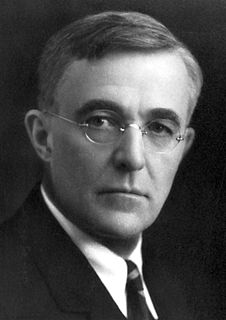Irving Kaplan may refer to:
- Irving Kaplan (government official), official of the United States government, accused of involvement in Soviet espionage
- Irving Kaplan (chemist), American chemist
- Irving D. Kaplan, American radiation oncologist
Irving Kaplan may refer to:

Irving Langmuir was an American chemist, physicist, and engineer. He was awarded the Nobel Prize in Chemistry in 1932 for his work in surface chemistry.

"Alexander's Ragtime Band" is a Tin Pan Alley song by American composer Irving Berlin released in 1911 and is often inaccurately cited as his first global hit. Despite its title, the song is a march as opposed to a rag and contains little syncopation. The song is a narrative sequel to Berlin's earlier 1910 composition "Alexander and His Clarinet". This earlier composition recounts the reconciliation between an African-American musician named Alexander Adams and his flame Eliza Johnson as well as highlights Alexander's innovative musical style. Berlin's friend Jack Alexander, a cornet-playing African-American bandleader, inspired the title character.

David John Cawdell Irving is an English author and Holocaust denier who has written on the military and political history of World War II, with a focus on Nazi Germany. His works include The Destruction of Dresden (1963), Hitler's War (1977), Churchill's War (1987) and Goebbels: Mastermind of the Third Reich (1996). In his works, he argued that Adolf Hitler did not know of the extermination of Jews, or, if he did, he opposed it. Though Irving's negationist claims and views of German war crimes in World War II were never taken seriously by mainstream historians, he was once recognised for his knowledge of Nazi Germany and his ability to unearth new historical documents.

Irving is a city in the U.S. state of Texas. Located in Dallas County, it is also an inner ring suburb of Dallas. The city of Irving is part of the Dallas–Fort Worth metroplex. According to a 2019 estimate from the United States Census Bureau, the city population was 239,798 making it the thirteenth-most populous city in Texas, and 93rd most populous city in the U.S. Irving is noted for its racial and ethnic diversity, and has been ranked as one of the most diverse cities in the United States. Irving includes the Las Colinas mixed-use master-planned community and part of the Dallas/Fort Worth International Airport.
David Kaplan may refer to:
William Irvine may refer to:
Langmuir may refer to:
Irving Kaplan was an official of the United States government, accused of involvement in Soviet espionage.
James Irvine may refer to:
Duer is a surname. Notable people with the name include:
Kaplan is a surname that is of ultimately Latin origins. There is also a historically unrelated surname in Turkey.
Irving Kaplan (1913–1997) was a chemist and a Massachusetts Institute of Technology professor, who was among the founders of the Department of Nuclear Engineering at the institution. Kaplan received a BA from Columbia University in 1933, an MA in 1934 and a PhD in chemistry in 1937. Before coming to MIT, he was a researcher in chemistry at the Michael Reese Hospital in Chicago from 1937 to 1941. He participated in the Manhattan Project to do research on isotope separation. Kaplan was also a lead founding member of the Federation of American Scientists, and worked with other scientists to promote civilian control of the atomic energy. This eventually led the way to the creation of the U.S. Atomic Energy Commission in 1947. From 1946 to 1957, he worked as a senior physicist at the Brookhaven National Laboratory on Long Island, and wrote a textbook titled Nuclear Physics. Kaplan visited MIT in 1957, and became a professor in 1958 to participate in the new department. He participated in various projects such as the research on lattices of partially enriched uranium rods in heavy water, and development of graduate and undergraduate courses such as the history of science and classical Greek. Professor Kaplan had a wife, two sons and one daughter, and four grandchildren. He died at the Massachusetts General Hospital on April 10 after a heart surgery.
People named Kaplansky(Polish: Kapłański, Russian: Капланский, also Kaplanski ) include:

"Supper Time" is a popular song written by Irving Berlin for the 1933 musical As Thousands Cheer, where it was introduced by Ethel Waters. The song is about racial violence inspired by a newspaper headline about a lynching.

Osman Yusuf Kenadid was a Somali poet, writer, teacher and ruler. Born in Ceel Huur in 1889, he went on to create the Osmanya alphabet for writing Somali. He died on 31 August 1972 in Mogadishu.

Myq Kaplan is an American stand-up comedian. Born Michael Kaplan in Livingston, New Jersey, he is based in Boston and New York City.
Steven Kaplan may refer to:

"In Plenty and In Time of Need" is the national anthem of the country of Barbados. It was written by Irving Burgie and was composed by C. Van Roland Edwards. As one part of the West Indies Federation from 1958 to 1962, Barbados' anthem was supposed to be "Forged from the Love of Liberty", however the current anthem was created with Barbados's moves toward full independence. The song was then adopted by Barbados when it became independent in 1966.
Harry Irving may refer to:
Irving is an originally Scottish surname, a variant of the name Irvine, which is derived from the eponymous River Irvine in Dumfriesshire. Irving is also used as a male given name.